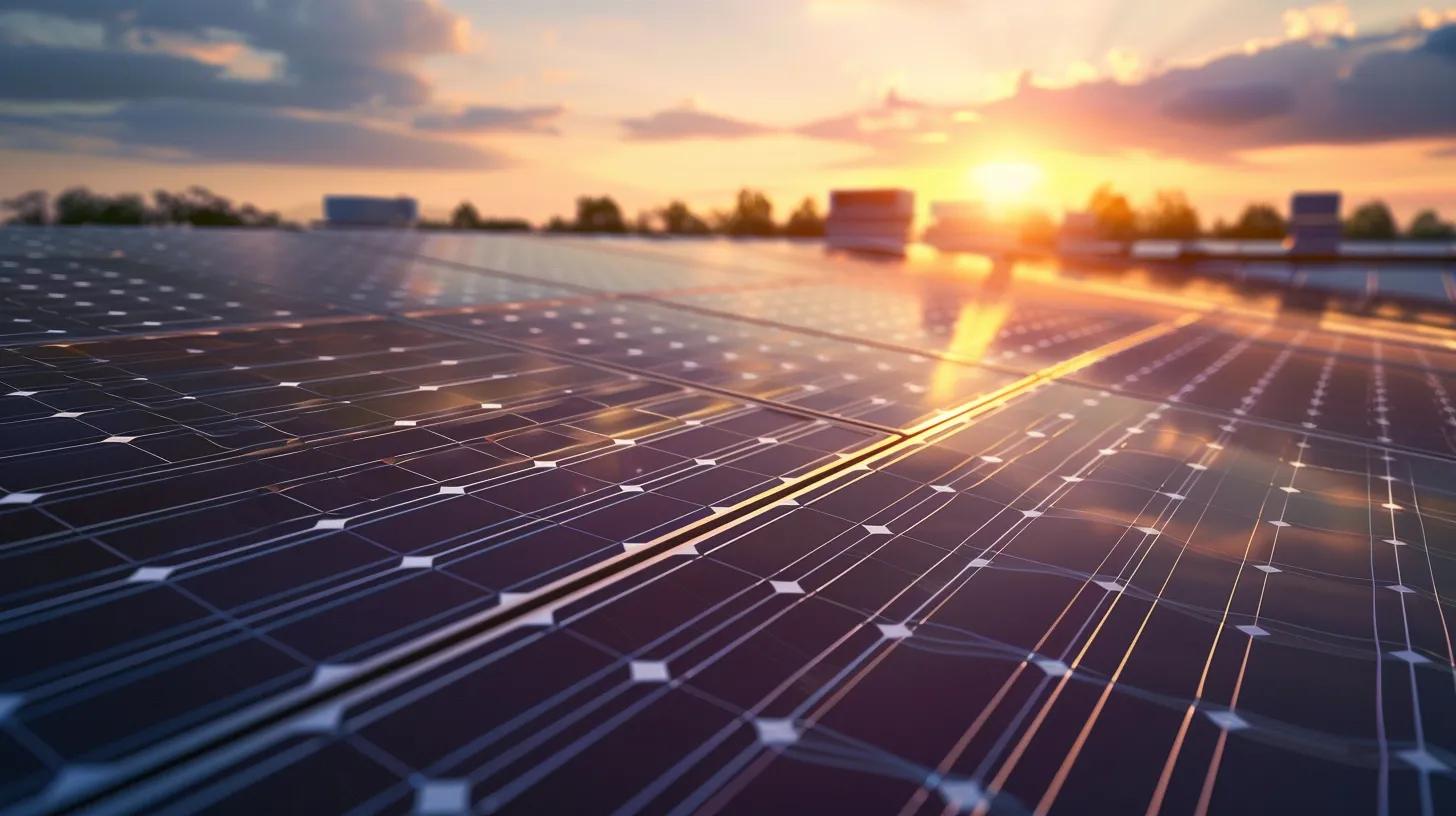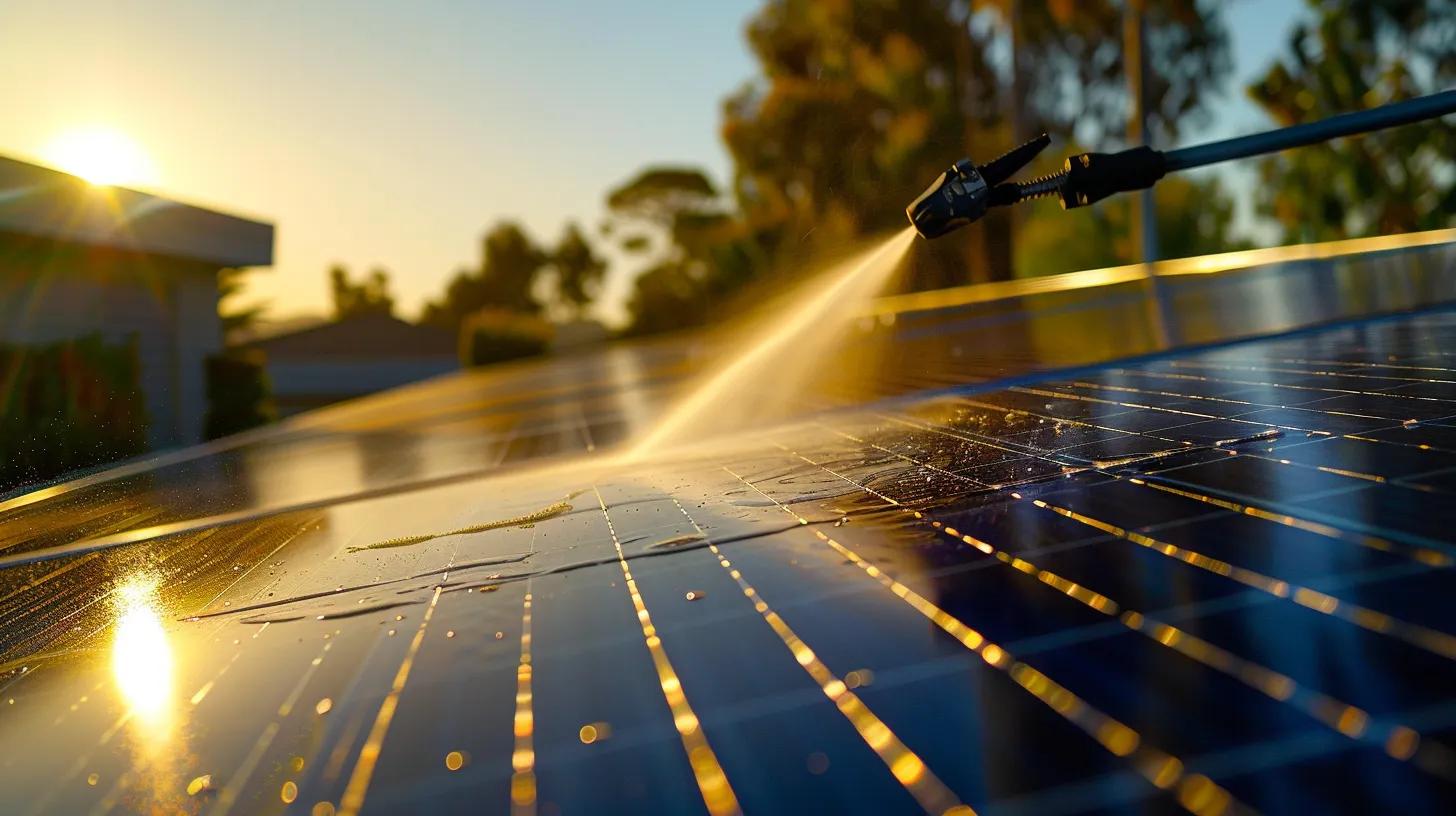Solar Panel Cleaning Techniques for Maximum Efficiency
Solar panels generate renewable energy, yet even the best systems lose efficiency when dirt, debris, and environmental contaminants build up. In the Phoenix metropolitan area, achieving maximum output requires more than just installation—it demands regular, effective cleaning. This article explains why cleaning is essential, reviews various methods and solutions, and outlines professional service expectations to help maintain peak performance and extend your investment’s longevity.
Why Is Solar Panel Cleaning Essential for Maximum Efficiency?
Regular cleaning of solar panels is crucial because accumulated dirt and debris can reduce efficiency by up to 20%. Keeping panels free of buildup ensures that maximum sunlight is captured by the photovoltaic system, supporting optimal energy production and preventing long-term damage from corrosive contaminants.
How Does Dirt and Debris Affect Solar Panel Performance?
Dust, pollen, and bird droppings block light from reaching the solar cells, reducing irradiance and conversion efficiency. Additionally, contaminants can cause micro-shading and create hot spots that degrade panel materials, highlighting the need for routine cleaning.
What Are the Key Benefits of Regular Solar Panel Cleaning?
Cleaning not only boosts energy efficiency but also prolongs panel life by removing corrosive substances. Well-maintained panels operate near their rated output, support lower temperatures, and help maintain manufacturer warranty conditions. In dusty areas like Phoenix, regular cleaning offers a better return on investment.
What Industry Statistics Support Cleaning for Efficiency Gains?
Research by institutions such as the National Renewable Energy Laboratory shows that routine cleaning can improve efficiency by 10%–20% in dusty conditions. Studies from North America have reported efficiency losses around 12% in areas with high contaminants, reinforcing the value of systematic cleaning.
What Are the Most Effective Solar Panel Cleaning Methods?

Several techniques restore and maintain panel performance. The choice of method depends on environmental conditions, panel type, and available resources. From water-fed pole systems to robotic cleaning, each method impacts both efficiency and cost.
How Does Water-Fed Pole Cleaning Work and Why Is It Effective?
Water-fed pole systems use purified water to gently rinse panels, preventing scratches and leaving a streak-free finish. This method allows cleaning from the ground, reducing labor costs and risk, and can recover up to 95% of lost efficiency due to dirt accumulation.
What Are the Advantages and Limitations of Brush Cleaning?
Brush cleaning uses soft bristles to remove stubborn dirt and bird droppings. It is effective at thorough cleaning but may cause micro-abrasions if not properly maintained or used on sensitive surfaces. Combining brush cleaning with gentle water applications helps maximize benefits while minimizing potential damage.
How Can Robotic Cleaning Improve Solar Panel Maintenance?
Robotic cleaning systems are ideal for large installations. They use controlled water jets and soft brushes to provide consistent, scheduled cleaning with minimal labor. Pilot projects have shown that robotic cleaning can maintain panel efficiency at up to 98% of optimal performance, even under heavy environmental loads.
What Are the Differences Between DIY and Professional Cleaning?
DIY cleaning, using garden hoses and mild cleaning agents, is cost-effective but labor-intensive and carries risks such as water damage or injury. Professional services employ specialized equipment, adhere to strict safety protocols, and generally deliver more effective cleaning with routine maintenance schedules that DIY methods may lack.
Which Cleaning Solutions Are Best for Solar Panels?
The right cleaning solution is critical to preserving panel efficiency and preventing degradation. An effective formulation dissolves grime without leaving a residue that can impede sunlight.
What Types of Cleaning Solutions Are Safe and Effective?
Safe cleaning solutions are typically non-abrasive and pH-neutral so they do not harm the protective coatings on panels. A mix of distilled water and biodegradable detergents is often recommended by manufacturers for both residential and commercial applications.
How Do Eco-Friendly Cleaning Options Compare?
Eco-friendly solutions use natural, biodegradable ingredients that minimize environmental impact. They reduce the risk of soil and water contamination while still delivering effective cleaning and aligning with green energy principles.
What Are the Safety Guidelines for Using Cleaning Solutions?
Follow manufacturer guidelines for dilution ratios and contact times. Always use protective gear such as gloves and goggles, and ensure any chemical used is non-corrosive and approved by environmental safety boards. Proper storage and disposal are also essential to minimize risks.
How Often Should Solar Panels Be Cleaned for Optimal Efficiency?

Cleaning frequency depends on location, climate, and environmental exposure. In areas like Phoenix with high dust and pollen, more frequent cleaning may be needed, while regions with regular rain might require less intervention.
What Factors Influence Solar Panel Cleaning Frequency?
Local dust levels, proximity to industrial areas, and seasonal weather variations influence cleaning needs. Rain can provide natural cleaning, but dry periods necessitate manual maintenance to clear contaminants like bird droppings and pollution.
How Can You Identify When Your Solar Panels Need Cleaning?
Indicators include a drop in power output, visible streaks or dust, and inconsistent energy readings. Monitoring inverter data and conducting visual inspections—especially after dust storms or during pollen season—helps determine when cleaning is required.
What Are Recommended Cleaning Schedules for Different Climates?
In arid climates, monthly cleaning may be optimal due to constant airborne dust. Conversely, in regions with high humidity and regular rainfall, biannual cleaning might suffice. Consulting local experts and manufacturers can help devise a schedule tailored to your specific system and environment.
What Should You Expect From Professional Solar Panel Cleaning Services?
Professional cleaning services offer comprehensive maintenance that combines advanced technology with expert care. They address both surface debris and stubborn contaminants, ensuring maximum energy production and extending the system’s lifespan.
What Does a Typical Professional Cleaning Service Include?
A typical service starts with a detailed inspection to assess dirt buildup, followed by cleaning with specialized equipment such as water-fed poles or robotic cleaners. Technicians may also check wiring and hardware. The service concludes with quality tests to ensure performance meets manufacturer specifications.
How to Choose the Right Solar Panel Cleaning Company?
Selecting a cleaning company involves reviewing their experience, customer feedback, and industry certifications. Confirm that technicians are trained and use eco-friendly solutions. Request detailed quotes from multiple providers to find one that fits your operational and budget needs.
How Does Professional Cleaning Impact Solar Panel Efficiency and Lifespan?
Professional cleaning can restore up to 95% of lost efficiency. Regular maintenance not only improves performance but also protects panels from corrosive damage, delivering immediate energy savings and long-term cost benefits.
What Are Typical Costs for Professional Solar Panel Cleaning?
Residential cleaning services generally range from $150 to $500 per session, while commercial installations may cost more. When balanced against increased efficiency and longer lifespan, these costs are often offset by reduced energy bills over time.
How Can You Maintain Solar Panel Efficiency Beyond Cleaning?

Efficiency extends beyond cleaning and requires routine maintenance practices. Regular inspections and prompt repairs help address component wear and prevent small issues from turning into costly problems.
What Routine Maintenance Tips Support Solar Panel Performance?
Periodic visual inspections for cracks, loose connections, and corrosion are essential. Check mounting hardware and wiring to ensure stability, and clean the surrounding area to minimize dust accumulation. These steps work together to safeguard your system’s reliability.
How Does Regular Inspection Help Prevent Efficiency Loss?
Regular inspections can identify shading, physical damage, or wiring degradation early on. Prompt troubleshooting and preventive measures help maintain optimal energy output and extend the panels’ operational life.
What Are Common Issues That Affect Solar Panel Efficiency?
Common problems include soiling, micro-cracks, and water ingress from damaged seals. Timely maintenance and repairs ensure that panels continue to operate at full capacity, minimizing efficiency losses.
What Are the Environmental and Economic Benefits of Solar Panel Cleaning?
Regular cleaning enhances energy output and has positive environmental and economic impacts. Clean panels produce more energy, reduce reliance on non-renewable sources, and lower greenhouse gas emissions—all while improving financial returns.
How Does Cleaning Contribute to Sustainable Energy Use?
By operating at peak performance, clean panels convert more sunlight into electricity efficiently, reducing wasted energy and the overall environmental footprint. This supports broader renewable energy goals by lowering carbonconsumption.
What Cost Savings Result From Maintaining Clean Solar Panels?
Improved efficiency means reduced electricity bills and a quicker return on investment. Both households and commercial operators experience savings through regular maintenance, which translates to enhanced competitiveness in energy costs.
How Does Solar Panel Cleaning Support Long-Term Investment Value?
Regular maintenance helps extend the lifespan of solar panels and protects the investment. Clean panels yield stable, high performance and can even enhance the resale value of a property, offering both immediate and lasting economic benefits.
Table: Comparison of Solar Panel Cleaning Methods
Below is a table summarizing key cleaning methods, their features, and benefits.
How Can You Maintain Solar Panel Efficiency Beyond Cleaning?

Integrate regular cleaning with overall system maintenance. Routine checks of wiring, frames, and mounting functionality help prevent performance loss. Professional services can further aid by offering upgrade advice and repairs that secure long-term efficiency.
What Are the Environmental and Economic Benefits of Solar Panel Cleaning?
Periodic cleaning maximizes renewable energy generation and reduces dependency on fossil fuels. Increased energy output results in lower bills and improved investment returns for both residential and commercial systems.
Final Thoughts
Solar panel cleaning is essential for maximizing efficiency and ensuring long-term performance. With options from water-fed pole systems to robotic cleaning, effective maintenance supports environmental sustainability and delivers significant economic savings. Professional services add value through comprehensive inspections and repairs, making regular cleaning a smart investment for both homes and businesses.
Frequently Asked Questions
Q: How often should solar panels be cleaned? A: In dust-prone areas like Phoenix, inspect and clean panels monthly or quarterly, while biannual cleaning may suffice where rain is frequent.
Q: Can DIY cleaning harm my solar panels? A: DIY cleaning with gentle, non-abrasive methods is possible, but improper techniques can cause scratches or water damage. Professional cleaning is recommended for optimal safety.
Q: What type of cleaning solution is best? A: pH-neutral, eco-friendly cleaning solutions effectively remove debris without damaging protective coatings.
Q: How do robotic cleaning systems compare to manual methods? A: Robotic systems offer consistent, scheduled cleaning with minimal labor, often recovering up to 98% efficiency compared to 85%-95% with manual methods.
Q: Will regular cleaning really reduce my electricity bill? A: Yes, by keeping panels at peak efficiency, clean panels generate more energy, which can significantly lower monthly electricity costs over time.


